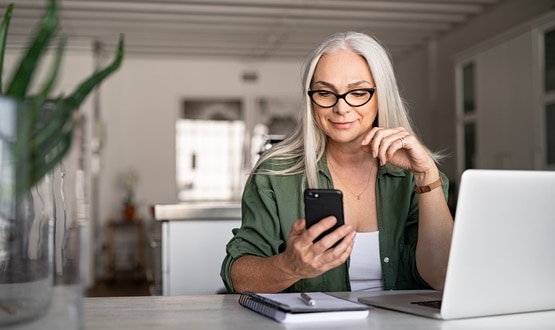Totally remote GP services ‘wouldn’t be in anybody’s best interests’

A totally remote GP service “wouldn’t be in anybody’s best interests”, the chair of the Royal College of GPs has said.
Professor Martin Marshall recognised the need to continue embracing technology following Covid-19 but cautioned digital services should only be uses “as long as it’s safe”.
“A totally, or even predominantly, remote general practice service wouldn’t be in anybody’s best interests long-term, and throughout the pandemic face to face appointments have been facilitated when they’ve been necessary,” he said.
“Remote consultations have benefits – they can be convenient for patients, and GPs have reported they have found them to be an efficient way of delivering care – but there are some things that simply can’t be done remotely, for example, when a physical examination is necessary or for a vaccination.”
His comments come after health secretary Matt Hancock said all GP appointments in the future should be done through teleconsultations unless there’s a “compelling reason not to”.
Speaking at a Royal College of Physicians event on the future of healthcare post-Covid, Hancock said teleconsultations would allow the NHS to provide a “much better” service.
But Marshall issued caution on embracing technology as a first option, adding some patients prefer to see their GP in person.
“We should remember that the changes were made out of necessity – to keep our patients and our teams safe and to help stop the spread of Covid-19,” he said.
“While there is a compelling case to retain some aspects of the different ways we’ve been working, we certainly do not want to see general practice become a totally remote service.”
But Graham Kendall, director of the Digital Healthcare Council (DHC), says it’s “hard to argue” with Hancock’s call for teleconsultaions to become the norm.
“This is about moving from a creaking system that used to default to travel, queue and wait, to asking what’s the best way to respond to each patient, for every encounter,” he said.
“In many circumstances, the best option for both the GP and the patient will be a remote consultation. Other times, it will be face-to-face either in the surgery or a home visit.
“To realise this vision, we need to get better at triaging, signposting patients and making the full range of consultation types easily available.”
But research from the DHC suggests “we have a long way to go to make digital triaging easily visible”, Kendall said.
“For example, services are often hard to find or missing from GP websites. Similarly, while some GPs are struggling with DIY approaches, specialist video consultation providers bring expertise in smoothly running remote consultations, which lead to more effective and efficient consultations and a better experience for all,” he added.
A recent report from the Royal College of GPs, General practice in a post Covid world, called for further commitments to digital technology to enable remote monitoring, digital consultations, flexible working and better sharing of data.
The adoption of digital tools was “significantly accelerated” during the pandemic. More than 70% of GP consultations in England were carried out face-to-face prior to the Covid-19 outbreak but within weeks the figure was 23%, RCGP figures show.
In June Digital Health News asked a number of digital GP suppliers how patients have been using their services since the start of the pandemic, and if this will change the way primary care services are delivered in the future.
Text and telephone consultations were favoured over video consultations, which providers put down to video being newer than telephone and therefore less familiar.




2 Comments
I feel that where we are now with the provision of healthcare and public support for general practice that we should build on the digital relationship we have built with patients over the last few months. Long before COVID the evidence suggested 60-70% of patients following a telephone/online triage episode didn’t want or require face to face.
There is of course a big place for face to face (no one wants to see this become more difficult to access) and the drive forward with a digital agenda shouldn’t be at the detriment to those that still require more traditional routes.
The NHS should be accessible to all and the digital agenda must be inclusive of non digital services and patients.
“But Graham Kendall, director of the Digital Healthcare Council (DHC), says it’s “hard to argue” with Hancock’s call for teleconsulta[t]ions to become the norm.”
You need to try a bit harder Mr Kendall. There is nothing to be said for Hancock’s call, unless, like Hancock, you are much more interested in the digital economy than you are in healthcare. If you want to make healthcare as ineffective as possible, while it still generates lots of lovely data the NHS can sell, then Hancock’s call is right on the mark. The system he envisages will be the death of real healthcare, which will be replaced by a “health” data generating machine. That is what Hancock is calling for. This is the Government’s industrial strategy. Let “healthcare” drive industrial growth. Anyone wanting real healthcare will have to pay for it.
Comments are closed.